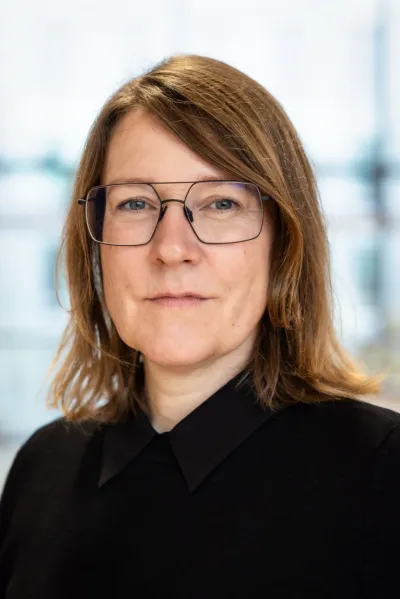Digitisation at the University of Applied Sciences Potsdam
We are shaping the digital transformation! As an educational and research institution, the FHP pursues the substantive claim of dealing with and developing questions and solutions for the social challenges of the digital turn .
Digital transformation at the FHP
The opportunities, risks, changes and processes associated with the digital transformation are taken up, discussed and accompanied, and scientific-artistic solutions are proposed and implemented. The conscious handling of data, the modernisation of administration and the reflection of digitality are all part of our digital agenda. We dovetail our actions with the seven strategic goals of the university, cooperate with other universities in the network and use the digital programme of the state of Brandenburg to implement projects synergistically as well as to undertake organisational, structural and technical measures together.
We strengthen the interconnectedness of the FHP with its environment, namely with civil society, with municipalities and with the economy, through cooperation with digital tools and services – as well as on digital topics and issues. As a university, we are positioning ourselves in terms of advancing digitisation and living digitality in our three profile lines. Digitisation is intended to promote exchange and cooperation between us and our partners and to improve existing and new collaborations. In this way, we are networking even more strongly regionally, nationally and internationally.
To ensure that digitisation does not become an end in itself, we continuously reflect on our digitisation projects. Our measures should relate logically and consistently to our fields of action and strengthen our interdisciplinary cooperation. The basis for this is the digitisation of administrative, controlling and supporting processes, which is often referred to as the digitisation of administration or internal digitisation. What all projects have in common is that they strive for meaningful modernisation.
New structures
The Vice President's Office for Digitisation and International Affairs was introduced at the University of Applied Sciences Potsdam on 1 April 2022 and Prof. Constanze Langer was elected to the office for three years. The main task within this term of office in the area of digitisation is the development of a digitisation strategy as well as the prioritisation and control of the operational implementation in close coordination within the Presidential Board, with the Central IT and the stakeholders involved. The dovetailing of the two areas of digitisation and international affairs in all three fields of action is to be worked out. This also requires the revision and digital transformation of processes with regard to the central university development projects in order to expand the infrastructural foundations. As a member of the Council of IT Officers (RIT) of the Centre of Brandenburg Universities for Digital Transformation (ZDT), she represents the FHP in order to further expand the constructive cooperation between Brandenburg universities.
To support this task, an employee has been hired for project coordination and process management as of November 2022. The existing university processes are to be recorded and their cooperative revision coordinated. Furthermore, the implementation of the Online Access Act (OZG) and the Single Digital Gateway Ordinance (SDG), which obligate the federal, state and local governments to also offer their administrative services digitally via administrative portals, will be supervised.
For the cross-departmental formulation, prioritisation and coordination of digitisation projects, the Vice-Presidents work closely with the committees, the departments, the staff units and the specialist departments. Current topics include algorithms and automation, online exams, new work, network segmentation and research infrastructure.
The chancellor, IT director, vice president for digitalisation and international affairs and the director of the university planning and development meet regularly to discuss the sequence and extent to which the individual measures can be implemented. The exchange on the status of the two central university development projects is also particularly relevant: These are the conversion to the campus management system (CMS) HISinOne and the development and introduction of a university-wide document management system (DMS).
The "IT Basics" working group was introduced for cross-departmental coordination regarding IT and information security, data handling and data protection, and to prepare guidelines and decisions regarding resources, hardware and software purchases.
Participants: Vice president for digitalisation and international affairs, IT management, information security officer, data protection officer and the chancellor.
Topics: IT and information security; IT disruptions and emergency management; IT concepts; IT resources; licence management; software and hardware equipment.
